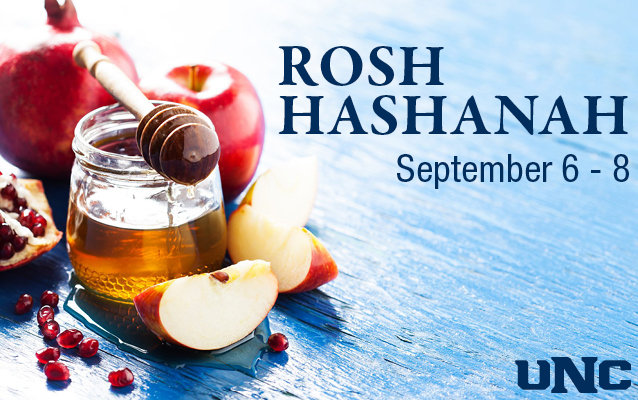Rosh Hashanah begins the evening of Monday, September 6, and ends on the evening of Wednesday, September 8, 2021. During this time, please remember that our students, faculty, and staff may observe this time filled with special blessings, food, and prayer and may request time away.
The two days of Rosh Hashanah usher in the Ten Days of Repentance (Aseret Yemei Teshuvah), also known as the Days of Awe (Yamim Noraim), which culminate in the major fast day of Yom Kippur, the Day of Atonement. The Days of Awe represent the climax of a longer process. Starting at the beginning of the previous month, called Elul, the shofar is traditionally sounded at the conclusion of the morning service. A ram’s horn that makes a trumpet-like sound, this is intended as a wake-up call to prepare for the Tishrei holidays.
One week before Rosh Hashanah, special petitionary prayers called Selichot are added to the ritual. Rosh Hashanah itself is also known as Yom Hadin or the Day of Judgment, on which God opens the Books of Life and Death, which are then sealed on Yom Kippur.
The challah (traditional bread) that is eaten for the Rosh Hashanah season is round, symbolizing the eternal cycle of life. The same is done with apples, which are made even sweeter with the addition of honey.
Take Action:
- Tips for celebrating Rosh Hashanah
- Classic Challah Recipe
- Ten Days of Repentance
- Attach the design element to your email signature and/or use it in your social media
For more information, please visit My Jewish Learning. For additional education and personal development related to diversity, equity and inclusion, the following resources are available: DDEI Education and Resources, DEI & Antiracism Resources from the UNC Libraries, the Education Equity Toolkit from the Colorado Department of Higher Education, and the UNITE workshops for faculty, staff, and students.


